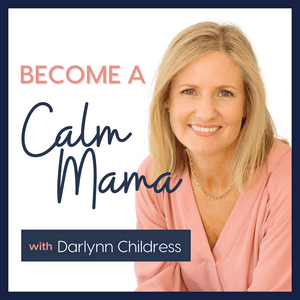Midlife & Post Motherhood Shifts with Jennifer Delliquadri
Today, I've invited my friend and fellow coach, Jennifer Delliquadri, to come talk with me about midlife, post-motherhood, and being a woman at this time in our lives. You’ll Learn:Why it’s natural for transformation to be messyTimes when Jennifer and I have experienced dissatisfaction in our own lives, and some of the shifts we madePandemic challenges we’re still working through when it comes to community and friendshipsTwo ways to get in touch with what you truly want in your life (that you can start right now)Often, when you feel dissatisfied with something in your life, that first step looks like saying, “I don’t know what it’s gonna look like yet, but I need to find a different way.”------------------------------------------Jennifer is a life coach who has worked primarily with teens and her parents, but she has has recently shifted into coaching women in midlife. The change was driven by her own “midlife wake-up call” and the method that she has used to transform her identity at different stages of life. She is also a mom of 2 and the host of the Subtle Shifts podcast. What Even is Midlife? For many of us, this shift away from day-to-day parenting into more of a consulting role with our kids marks that transition to midlife. I am currently in a stage of life where I’ve pretty much retired from parenting. I’ve raised my kids. They are no longer living at home. I’m not thinking about what they’re going to eat or doing their laundry. These days, I’m pretty free, and my kids are doing pretty well. There’s a lot of open-ended excitement, but it’s also a bit overwhelming. Jennifer talks about why this happens. “For so long, we haven't had that freedom. And so it can feel unsettling, like something must be wrong if I have so much time or I'm not used to having this time, and I don't know what to do with it.”I have also noticed that there is a gap in models. You may not really have a concept of what it looks like to be a woman post-child rearing and pre-grandmothering. Most of our models of womanhood revolve around caregiving. So if we see caregiving as our role and purpose, and then we don’t have anyone to care for, what value do we have to give?Maybe you carved out all this time for other people, and now that it’s just you, you feel a little lost. If you’re feeling isolated, maybe thinking that you’re missing something or have done something wrong, know that you are not alone. There are so many of us who feel this way. Going Into the CocconJennifer shared a story about her own midlife confusion. She says, “there was a point where I was on vacation - I was in Hawaii with my family, and, you know, it's beautiful. And I was getting ready to turn 50 and, like, excited about that and proud about that. But at the same time, I have this kind of feeling like, ‘what the fuck?’” She was postmenopausal, her body didn’t feel like her body anymore, and she just generally didn’t feel like herself. She felt like there was nothing to look forward to or be excited about anymore. And with her kids getting older, she was just going to fade away.She had everything she ever wanted in her life - a husband she loves, great kids, a business she enjoys and is proud of. She was on a trip in a beautiful place, and she still felt like shit. She says, “I could hear things that people say like, ‘Oh, this is where the magic begins,’ or, ‘This is when you finally have time to focus on yourself.’ But I'm like, I don't even know what that means for me. What do you mean focus on myself?”She decided to take action, starting with dialing in her nutrition and exercise. She started going to therapy. Finding areas where she...
